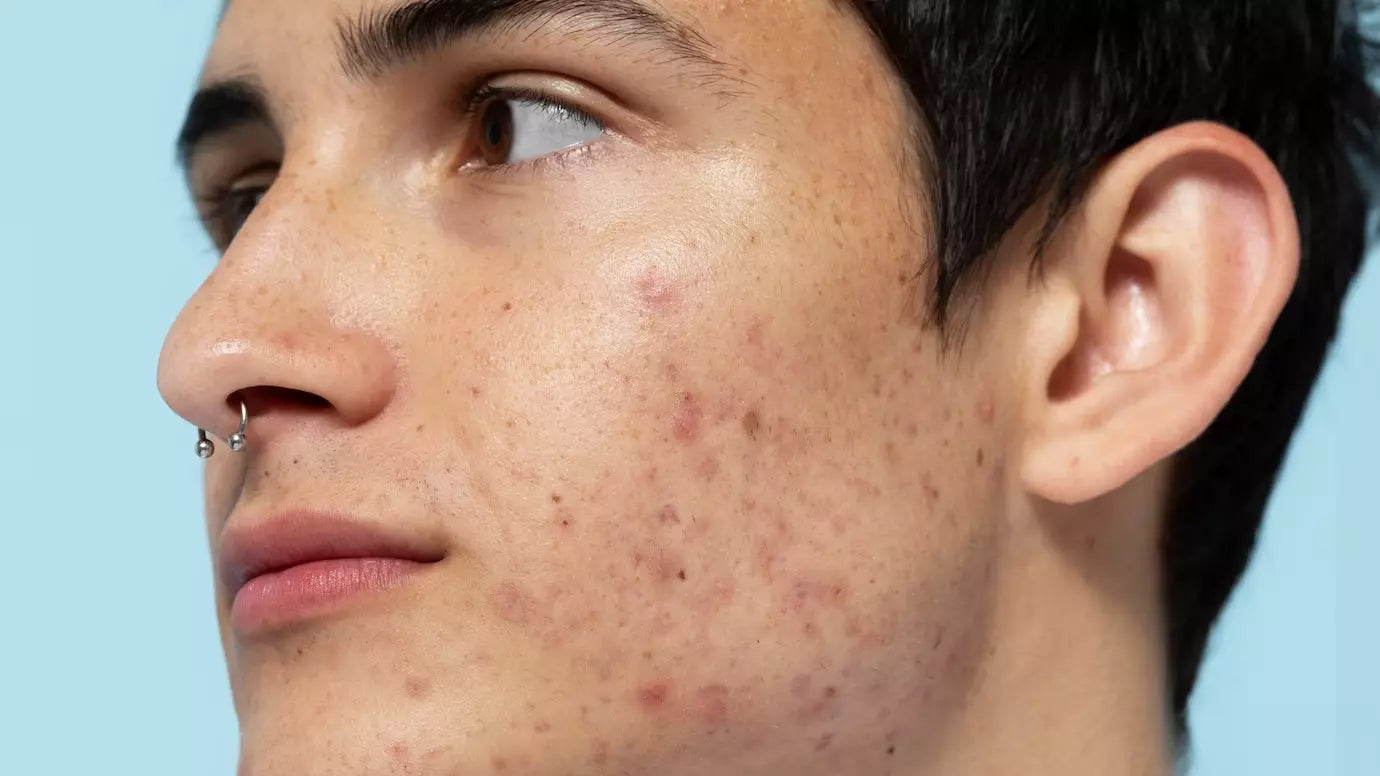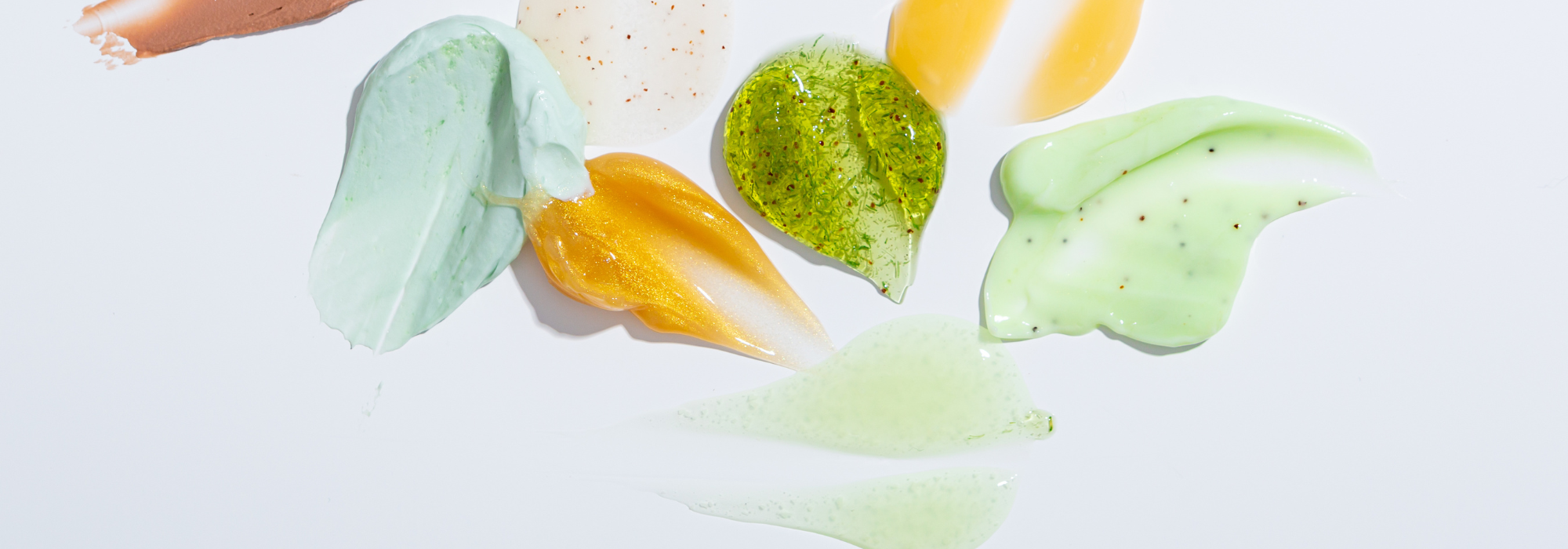
How to Tackle Hyperpigmentation and Even Out Skin Tone
Hyperpigmentation, a common skin concern that affects millions worldwide, is the darkening of an area of skin caused by an excess production of melanin. Various factors, including sun exposure, hormonal changes, and inflammation, can trigger this condition. If you're struggling with uneven skin tone, you're not alone. Today, we'll explore effective strategies to manage hyperpigmentation and achieve a luminous, even complexion.
Understand the Causes
To effectively treat hyperpigmentation, it's crucial to understand its root causes. Whether it's melasma, post-inflammatory hyperpigmentation, or sunspots, identifying the type of hyperpigmentation you're dealing with is the first step towards a targeted treatment plan.
Sun Protection: Your First Line of Defense

Sun exposure can exacerbate hyperpigmentation by stimulating melanocyte activity. Incorporating a broad-spectrum sunscreen with an SPF of 30 (we like SPF 50+) or higher into your daily skincare routine is non-negotiable.
Topical Treatments That Work
Several over-the-counter and prescription treatments can help lighten dark spots effectively:
Azelaic Acid: Renowned for its ability to reduce inflammation, azelaic acid is effective in treating hyperpigmentation, especially post-inflammatory marks from acne. It inhibits tyrosinase, an enzyme involved in melanin production, thereby reducing pigmentation.
Alpha Arbutin: A more stable form of arbutin, alpha arbutin is a powerful skin brightener. It works by slowly releasing hydroquinone, which inhibits melanin production, making it effective in treating dark spots and hyperpigmentation without being too harsh on the skin.

Kojic Acid: Derived from fungi, kojic acid is another inhibitor of tyrosinase. It’s often used in skincare products to lighten visible sun damage, age spots, or scars. Suitable for all skin types, kojic acid is particularly effective when combined with other ingredients like vitamin C or glycolic acid.
Licorice Root Extract: Containing glabridin, licorice extract is a natural and gentle ingredient known for its skin brightening properties. It helps diminish the appearance of dark spots and hyperpigmentation by dispersing melanin and inhibiting melanin production.
Mandelic Acid: A type of AHA (alpha hydroxy acid), mandelic acid is derived from bitter almonds. It's larger in molecular size compared to other AHAs, which allows it to penetrate the skin more slowly and less irritatingly. Mandelic acid accelerates cell turnover, improves skin texture, and reduces pigmentation. It’s particularly suitable for sensitive skin types and those prone to redness.
Vitamin C: Vitamin C, also known as ascorbic acid, is a powerful antioxidant that plays a crucial role in skin health. It's well-known for its ability to brighten the skin, reduce signs of aging, and protect against environmental damage. Vitamin C inhibits the enzyme tyrosinase, reducing melanin production, which can help lighten hyperpigmentation, dark spots, and even out skin tone. It also promotes collagen production, enhancing skin's overall texture and firmness. For best results, look for serums with a concentration of 10-20% vitamin C.

Retinoids: Retinoids, derivatives of Vitamin A, are celebrated for their profound effects on the skin, including speeding up cell turnover, boosting collagen production, and unclogging pores. These actions help to fade dark spots and hyperpigmentation by encouraging the removal of pigmented skin cells and promoting the growth of new, healthy skin. Retinoids are available in various forms, from over-the-counter retinol to prescription-strength tretinoin. They can make the skin more sensitive to the sun, so it's essential to use them in conjunction with a high-SPF sunscreen.
Niacinamide: Niacinamide, or Vitamin B3, is a versatile skincare ingredient that works wonders for a wide range of skin concerns. It improves the skin's barrier function, reduces inflammation, and helps to even out skin tone by inhibiting melanosome transfer from melanocytes to keratinocytes. This action can help reduce the appearance of hyperpigmentation, melasma, and age spots. Niacinamide is also known for its ability to regulate oil production and minimize fine lines and wrinkles, making it suitable for all skin types, including sensitive and acne-prone skin.
Hydroquinone: Hydroquinone is one of the most effective and potent ingredients for treating hyperpigmentation. It works by decreasing the formation of melanin in the skin, which helps lighten dark spots and hyperpigmentation. Typically used in concentrations of 2% (over-the-counter) to 4% (prescription strength), hydroquinone can yield visible results within a few weeks. However, due to its potency, it's recommended to use hydroquinone under the guidance of a dermatologist, as overuse can lead to skin irritation or a condition known as ochronosis, characterized by bluish-black pigmentation.
When incorporating these ingredients into your skincare routine, remember that consistency and patience are key. It can take several weeks to see noticeable improvements.
The Role of Professional Treatments
For those seeking more immediate results, professional treatments can offer a solution. Chemical peels, laser therapy, and microneedling are popular options that should be performed by a licensed dermatologist. These procedures can significantly improve skin texture and tone but require thorough research and consultation to determine the best option for your skin type.

Building a Comprehensive Skincare Routine
A holistic approach to managing hyperpigmentation involves more than just spot treatment. Establishing a skincare routine that includes gentle cleansing, moisturizing, and regular exfoliation can support skin health and prevent further damage. Always listen to your skin's needs and adjust your routine accordingly.
Conclusion
Tackling hyperpigmentation requires a multifaceted approach that includes prevention, targeted treatments, and a commitment to nurturing your skin. By understanding the causes of hyperpigmentation and incorporating effective skincare practices, you can achieve the even, radiant complexion you desire.
Remember, every skin journey is unique. Patience and perseverance are your allies in achieving your skin goals. For personalized advice and more in-depth solutions, consider consulting with a skincare professional.
At Smood Beauty, we're committed to providing you with the knowledge and products to support your skincare journey. Share your experiences, tips, or questions in the comments below or connect with us on social media. Let's embark on this journey to radiant skin together!



Leave a comment
This site is protected by hCaptcha and the hCaptcha Privacy Policy and Terms of Service apply.